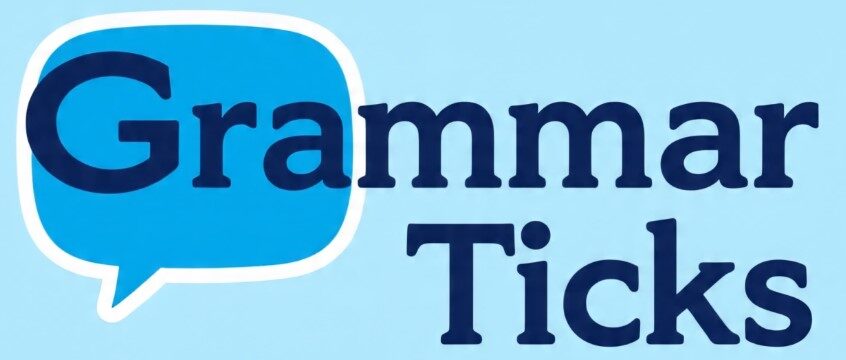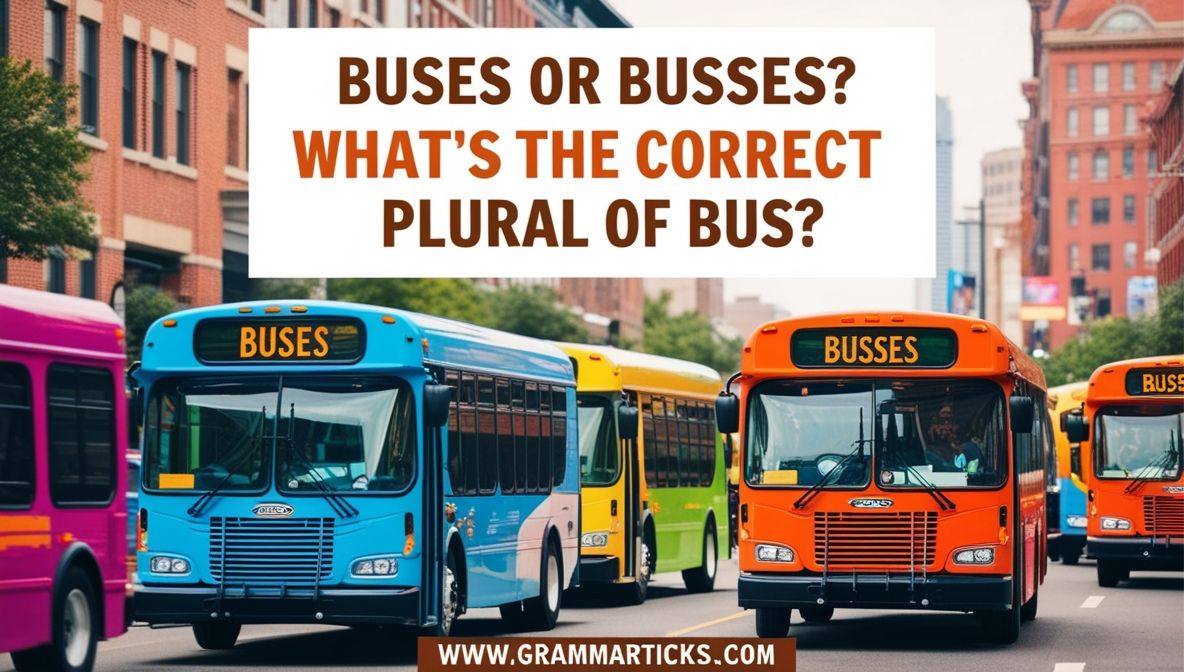When it comes to English grammar, even the simplest words can cause confusion. One such example is “Buses or Busses” a pair that looks similar but means very different things. If you’ve ever hesitated while writing the plural of bus, you’re not alone. This small spelling choice raises questions about usage, grammar rules, and even word origins.
In this article, we’ll explain the correct plural of bus, clear up why the spelling causes debate, and show you real-life examples to help lock it in. Along the way, you’ll learn about bus etymology, public transportation terms, and how to avoid making the common mistake of mixing up these look-alike words.
What Does “Bus” Really Mean?
Before choosing the right plural form, it helps to understand the bus definition. A bus is a large vehicle designed to carry many passengers—usually part of a public transportation system like city buses, school buses, or long-distance buses.
The term also appears in technology, where bus computing refers to systems like a data bus or control bus used for transferring data. Knowing the context is key when using the plural.
Buses or Busses: The Short Answer
The correct plural of bus is buses. This is the form you’ll find in newspapers, books, and dictionaries.
“Busses” is considered either archaic or a completely different word—it can mean kisses (derived from “buss”) or appear in older texts. For transportation contexts, always use buses.
| Word | Plural Form | Usage Example |
|---|---|---|
| Bus | Buses | “Three city buses pulled into the terminal.” |
| Buss | Busses | “The old woman gave her grandson two busses on the cheek.” |
Why Is There Confusion Between Buses and Busses?
The confusion stems from English pluralization rules. For words ending in -s, -sh, or -x, we usually add -es to form the plural: kiss → kisses, box → boxes.
People often assume bus should follow the same rule: bus → busses. But “bus” is an exception in modern usage. Buses is the correct and widely accepted form.
Tip: When in doubt, check a current dictionary or a respected style guide like the Chicago Manual of Style or AP Stylebook. They all support buses as standard.
Understanding the Origins: Bus Etymology
The word bus is a shortened form of omnibus, a Latin term meaning “for all.” In the 19th century, omnibus was used to describe a public vehicle that anyone could ride. Eventually, it was clipped to just “bus.”
| Term | Origin | Meaning |
|---|---|---|
| Omnibus | Latin | “For all” |
| Bus | 1830s, English | Short form of “omnibus” |
| Buss | Middle English | To kiss (no link to vehicles) |
Understanding the bus etymology clears up why busses as a vehicle plural form is incorrect the original word has nothing to do with kissing.
Bus vs Busses in Real-Life Scenarios
Let’s look at two common situations:
Scenario 1: Transportation ✅ Correct: “I missed two buses this morning and had to call a ride.” ❌ Incorrect: “I missed two busses this morning…”
Scenario 2: Romance or Literature ✅ Correct: “He gave her two busses on the cheek before leaving.” (Here, “busses” is a noun form of kiss and has nothing to do with vehicles.)
Grammar Rules for Words Like “Bus”
Here’s a quick reference table for similar words:
| Singular | Plural | Rule |
|---|---|---|
| Bus | Buses | Exception to -s rule |
| Kiss | Kisses | Add -es |
| Box | Boxes | Add -es |
| Dish | Dishes | Add -es |
| Gas | Gases | Add -es (note vowel) |
How to Avoid Confusion
Still unsure? Use these simple tips:
- If you’re writing about vehicles, always choose buses.
- If it means “kisses,” you’re dealing with busses—but this usage is outdated.
- Check a trusted source if you’re unsure (Oxford, Merriam-Webster, etc.)
- Use spelling tools or grammar checkers for fast clarification
Common Synonyms and Alternatives for “Bus”
Depending on the context, you can use:
- Coach – long-distance buses, often luxurious
- Shuttle – short, repeated trips (like airport shuttles)
- Minibus – smaller passenger vehicle
- Charter – privately rented bus
- Transit vehicle – general term for public service vehicles
Real Usage Across the English Language
Let’s look at real examples of each form in everyday writing:
| Sentence | Explanation |
|---|---|
| “The buses were delayed due to snow.” | Standard usage in transportation |
| “She gave him gentle busses on the forehead.” | Literary/archaic term meaning kisses |
| “The bus fleet includes electric buses.” | Consistent with modern public systems |
FAQs
Is “busses” ever correct?
Yes, but only when used to mean “kisses,” which is rare and old-fashioned.
Which is the correct plural of bus in American English?
Buses is the standard and accepted form in both American and British English.
Can I use “busses” to mean more than one bus?
No. That usage is considered incorrect or outdated. Stick with buses.
Final Takeaway: Choose Buses Every Time for Vehicles
So, what’s the final word on “Buses or Busses”? It’s simple. When you’re talking about more than one vehicle, always use buses. That’s the main keyword and the correct choice in modern English.
Busses is only used when referring to kisses, and even then, it’s old-fashioned.
To keep your writing clear, remember: If it’s about transportation, go with buses.
It’s an easy rule once you get it.
Now you won’t pause next time you write the plural of bus.

